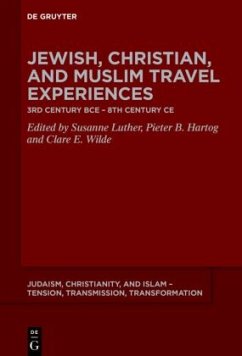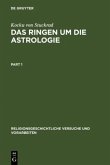Travel and pilgrimage have become central research topics in recent years. Some archaeologists and historians have applied globalization theories to ancient intercultural connections. Classicists have rediscovered travel as a literary topic in Greek and Roman writing. Scholars of early Judaism, Christianity, and Islam have been rethinking long-familiar pilgrimage practices in new interdisciplinary contexts.
This volume contributes to this flourishing field of study in two ways. First, the focus of its contributions is on experiences of travel. Our main question is: How did travelers in the ancient world experience and make sense of their journeys, real or imaginary, and of the places they visited? Second, by treating Jewish, Christian, and Islamic experiences together, this volume develops a longue durée perspective on the ways in which travel experiences across these three traditions resembled each other. By focusing on "experiences of travel," we hope to foster interaction between the study of ancient travel in the humanities and that of broader human experience in the social sciences.
Hinweis: Dieser Artikel kann nur an eine deutsche Lieferadresse ausgeliefert werden.
This volume contributes to this flourishing field of study in two ways. First, the focus of its contributions is on experiences of travel. Our main question is: How did travelers in the ancient world experience and make sense of their journeys, real or imaginary, and of the places they visited? Second, by treating Jewish, Christian, and Islamic experiences together, this volume develops a longue durée perspective on the ways in which travel experiences across these three traditions resembled each other. By focusing on "experiences of travel," we hope to foster interaction between the study of ancient travel in the humanities and that of broader human experience in the social sciences.
Hinweis: Dieser Artikel kann nur an eine deutsche Lieferadresse ausgeliefert werden.








